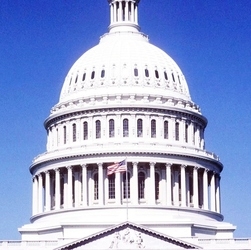 The failure of the debt supercommittee to reach a resolution for cutting more than $1.2 trillion over 10 years brings further uncertainty about key renewable energy incentives.
The failure of the debt supercommittee to reach a resolution for cutting more than $1.2 trillion over 10 years brings further uncertainty about key renewable energy incentives.
Although the wind and solar industries held out some hope that the panel would touch upon policy important to them, the committee spent much of their time tackling systemic issues, such as tax reform, extending unemployment insurance and payroll tax modifications.
Reportedly, any agreement among the hand-picked, blue-ribbon panel proved elusive, as talks broke down along party lines – Democrats aiming to initiate tax increases and Republicans balking at the idea. This also meant that the future of key incentives important for renewables, such as extensions of the Sec. 1603 cash-grant program, (which expires at the end of this year) and the production tax credit (which, for wind, expires at the end of 2012, and 2016 for solar), is still murky.
So intractable is the political mindset, it is unclear if the group even broached renewable energy policy.
‘[Discussion of renewable energy is] definitely possible given the political environment and the need to achieve some forward progress,’ says Frank Maisano, an energy analyst at Washington, D.C.-based Bracewell Giuliani, who envisions a few scenarios that extend renewable energy policies.
He says the extensions could be part of a continuing resolution – an omnibus bill whose passage is needed in order to keep the government running – that has to be passed by Dec. 16, or as part of a separately introduced bill.
However, given the political split on Capitol Hill, the second scenario is less likely.
‘I don't know who wins in the end,’ Maisano says, ‘but I would expect that it would be more inclusive than not.’
Others, however, are less optimistic.
‘We're certainly not very hopeful,’ says Christi Tezak, senior energy and environmental policy analyst at Robert W. Baird & Co. ‘Extending the [cash-grant] program adds to the deficit, which doesn't help resolve the issue.’
She says that other than the payroll tax extension, which the White House has indicated it would like to see extended even if it is not offset, all other program extensions appear to need to be paid for.
‘Given the fact that time is short, and we're not done with the budget, I would be very surprised if any expiring program other than the payroll tax gets extended this year,’ she says.



